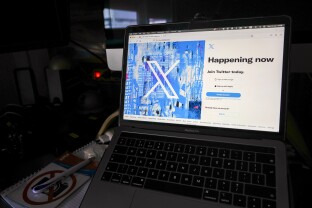Bad actors are actively working to spread disinformation among the American public, according to the U.S. government. Researchers say social media companies are making it more difficult to track just how deep these campaigns go.
The FBI has warned that Russia, China and Iran are leveraging major social media platforms and pay-for-influence celebrities to spread propaganda around the presidential elections, including fake videos intended to sow discord and undermine confidence in the elections. Collecting data on these incidents is a challenge, some say.
“The platforms have restricted or monetized access to application programming interfaces or APIs, which allow groups like mine, journalists or researchers at universities to be able to track this stuff,” said Nina Jankowicz, who previously led an advisory board on disinformation in Joe Biden’s administration.
